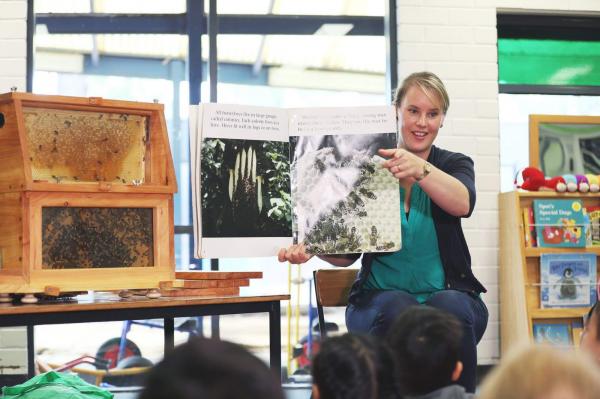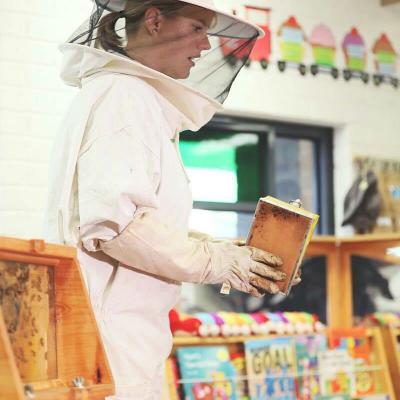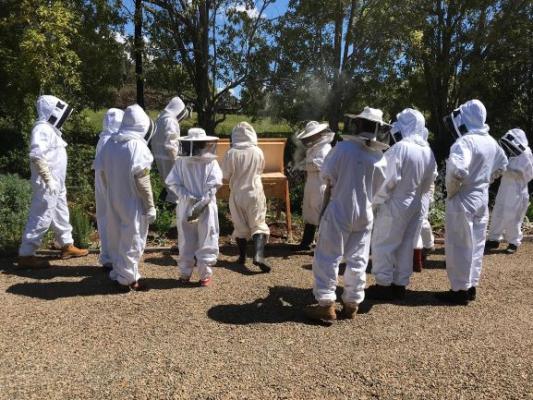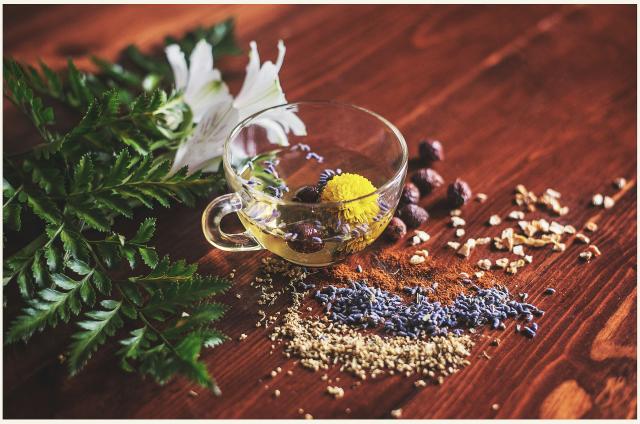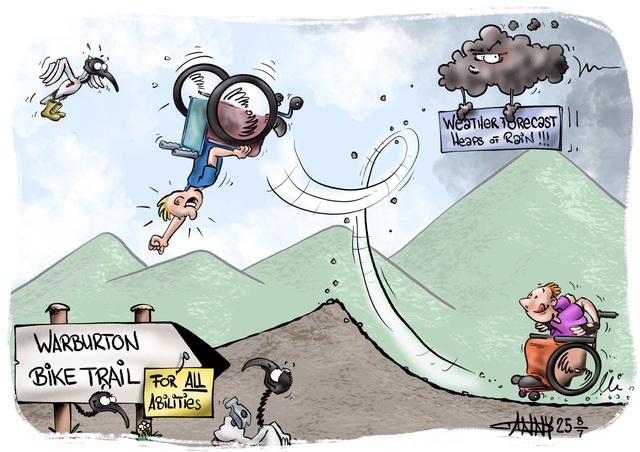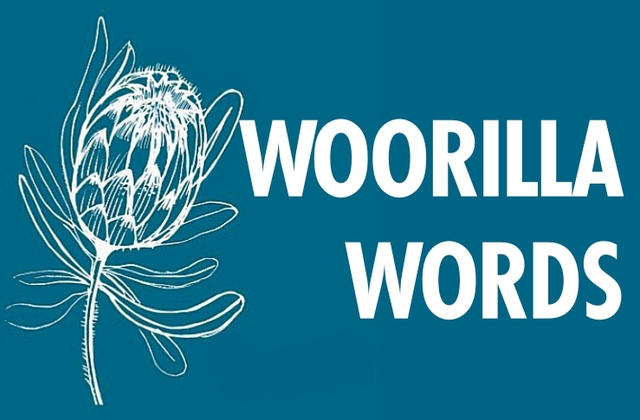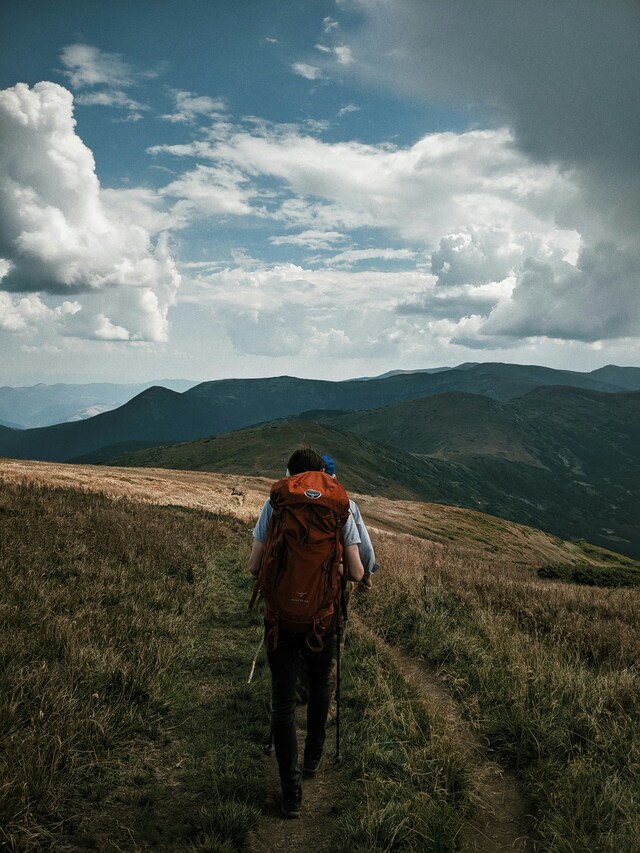You can hear them buzzing in the springtime, jumping from flower to flower, taking in all the goodness.
They give us the sweet and sticky gooeyness that is honey.
But have you ever wondered what our yellow and black bee friends do for the environment?
Holly Hale from Holly’s Backyard Bees was meant to host a beekeeping workshop at Kilsyth’s Japara House for National Science Week but because of lockdown she was unable to.
So instead, Star Mail chatted to her about the importance of bees for our ecosystem and how they are an important part of living sustainably.
Honey bees are the most efficient pollinators in terms of agriculture, allowing much of our food to grow and flowers to bloom whether in a small backyard garden or for mass production.
“Insects in general are so important to healthy ecosystems and helping to pollinate our flowers and things that then encourage other beneficial insects into our environment too,” Ms Hale said.
The hidden lives of bees intrigue people as they learn about their idiosyncratic characteristics and something Ms Hale said people are very interested to learn about is the waggle dance.
“If a worker bee is out foraging for food and finds a magnificent gum tree in full flower, they obviously want to tell the rest of their sisters so that they can all go and bring in the nectar as well. So they come back and do a series of movements,” she said.
The duration of the waggle dance indicates how far away the nectar source is and the direction of the waggle across the comb correlates to the direction they need to fly in relation to the sun.
“They don’t have a big brain but instinctively they are waggling in the direction so when they do come out they know how far to fly and where they’ll find it.”
Ms Hale finds joy in teaching others about bees and relieving some of the fears around bees and their function.
“I think for a lot of people, they have had a negative experience with bees, either being stung or being caught in a swarm,” she said.
“I think as adults, if I’m fearful of something, that rubs off on my kids and then they grow up with a perception of something because that was my perception.
“That’s why I love teaching kids because sometimes it’s easier to help them foster a love for something when they experience it in a positive way.”
Teaching both adults and children, Ms Hale loves when people learn how bees fit into what we eat.
“I teach them about and help them make a connection between the things they love to eat and the things they love to grow and how bees play a part in that because I think a lot of people just think bees equal stings, without appreciating what it is they do for us and how they help our environment.”
“One thing I love talking to adults about is once they do make that connection that bees are so beneficial and without them then we wouldn’t have cherries or apricots or zucchinis, then I go along the track of how we can change our behaviour to be better stewards of the environment, better stewards of the earth so that we can help honey bees.”
Ms Hale is a self taught beekeeper but it wasn’t until her fruit trees weren’t producing fruit that she realised how important bees were to her garden.
“I’m a gardener first before I was ever a beekeeper and I grew a lot of vegies at home and had a lot of fruit trees.”
The self confessed garden addict only started growing her own fruit and vegetables when her first daughter was born 12 years ago.
“I also wanted my kids to know where food comes from, that it doesn’t come Glad wrapped on supermarket shelves and I wanted to grow organically.”
Quickly outgrowing their backyard in Ferntree Gully, the family moved to a larger property in Mount Evelyn seven years ago.
Seeing how many bookings she’s had for educational talks in primary schools and kindergartens has been really inspiring for her as someone quite environmentally conscious.
This year in particular, there have been grants from Landcare and other environmental bodies to encourage schools to incorporate education about bees and their importance into the curriculum.
This is something Ms Hale said can fit into kitchen garden programs, Science Week and environmental studies around ecosystems and lifecycles.
Ms Hale said children and adults alike love learning about how the colony functions as a single organism and how each bee plays a part in the system.
“The fact that there is one queen and the worker bees and all the different jobs they do as they move through their lifecycle. So understanding the role of the different bees in the hive and how it functions in such a perfect way,” she said.
For Ms Hale living sustainably and including bees in that process has become a way of life.
“Even during the Covid times, it was lovely just to say ‘I’m going to go do my grocery shopping’ and go and just step outside into the garden, take my basket and pick what I needed for dinner.”

